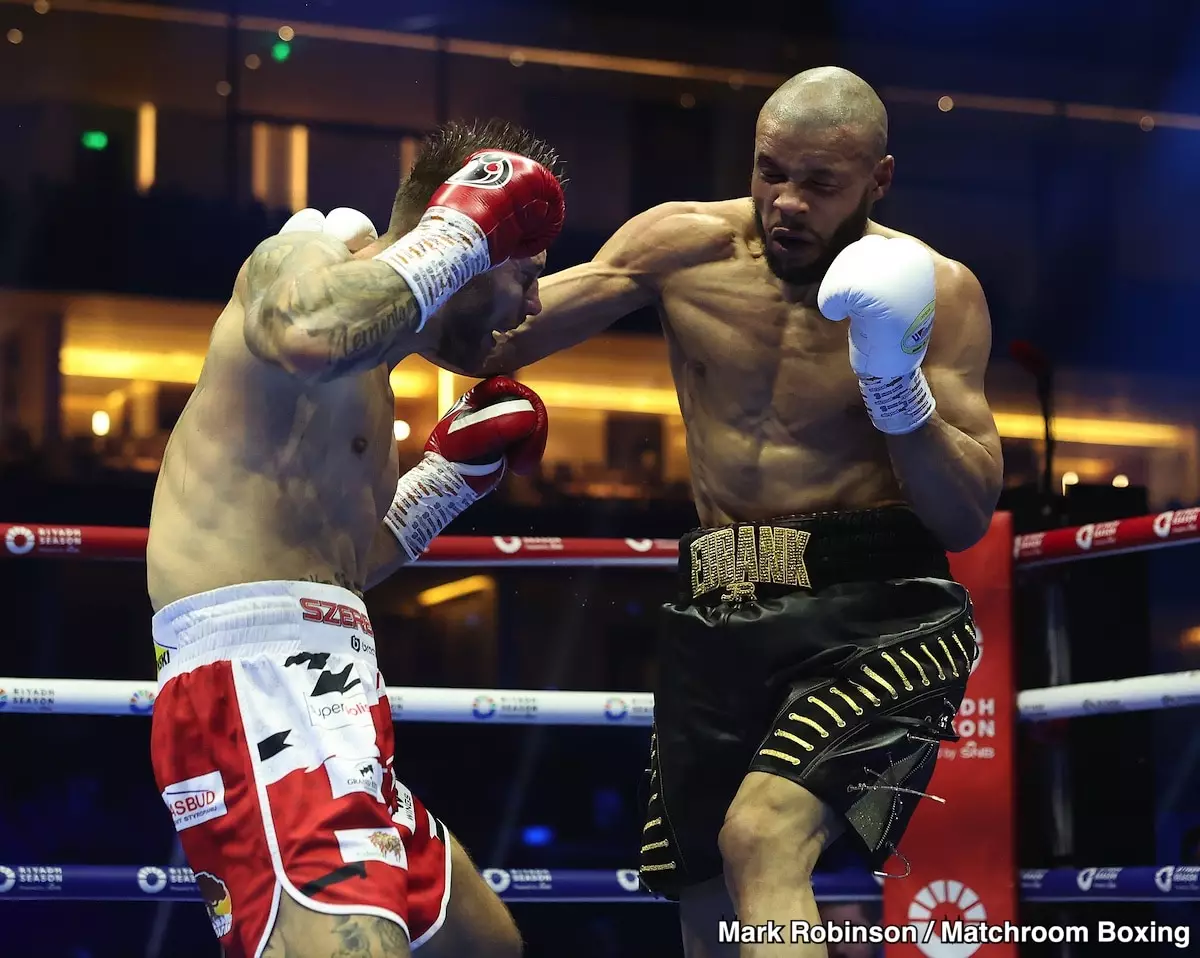In the world of professional boxing, the legacy of an athlete is often dictated by their ability to win championships and compete at the highest levels. However, the landscape shifts significantly when financial stability and celebrity status take precedence over accolades. Chris Eubank Jr., a middleweight boxer and son of British boxing icon Chris Eubank Sr., stands at the crossroads of this phenomenon. As critiques emerge regarding his commitment to the sport, analyst Carl Froch highlights the stark contrast between Eubank Jr.’s career aspirations and the expectations associated with being a world-class athlete.
Carl Froch’s recent remarks about Eubank Jr. expose a growing concern in the boxing community: the prevalence of celebrity athletes more inclined to pursue financial gain than genuine competition. Froch argues that Eubank Jr. embodies this trend, suggesting that the fighter is more interested in filling arenas for paychecks rather than securing victories in the ring. This aspect of professional boxing lends itself to a form of entertainment, edging away from the purity of the sport towards a showbiz-like ethos. Eubank Jr.’s lavish lifestyle reflects this shift, as he navigates a world filled with endorsements and high-profile events, which can detract from the intensity and preparation required for elite competition.
The numbers reveal a telling narrative regarding Eubank Jr.’s engagement with championship boxing. Despite a thirteen-year career, the fighter has only contested for a legitimate world title once, which resulted in a unanimous decision loss to George Groves in 2018. This inconsistency raises questions: at 35 years old, is Eubank Jr. genuinely vying for greatness, or has he settled for a lucrative role as an entertainer? Froch’s criticism suggests that Eubank Jr. has opted for a more exhibitionist route within the sport, carefully curating his matchups to align with commercial viability over competitive integrity.
Moreover, the boxer maintains that there are profitable matchups waiting on the horizon, including fights against current stars like Conor Benn, Canelo Alvarez, and Billy Joe Saunders. These matchups serve dual purposes: they promise significant financial reward while also maintaining Eubank Jr.’s presence in the boxing conversation. While he appears to garner public interest due to his lineage, many fans are left wondering if his legacy will ultimately be defined by pay-per-view sales rather than titles.
Despite Froch’s critical perspective, there remains a buoyant market for Eubank Jr. The son of a celebrated champion carries both the weight and privilege of that name, which cultivates an audience eager to engage with his bouts. Even as discussions of “world-level” competition arise, the public consumes Eubank Jr.’s matches with a unique blend of nostalgia and intrigue. Froch himself notes that while Eubank Jr. might not belong at the very top echelon of boxing, his appeal lies in his ability to deliver entertainment value rather than exemplary athleticism.
Froch’s suggestion to hold Eubank vs. Benn in the UK reignites conversations about the importance of historical rivalries in boxing. While matches in foreign markets, like Saudi Arabia, promise significant financial gains, they risk diluting the sport’s rich tradition and community connection. An in-person showdown across the British Isles may invoke sentiments tied to the heritage of both legendary fighters, giving fans an emotional stake as they watch the next generation collide.
The Future of Eubank Jr.’s Career
As Chris Eubank Jr. navigates these pivotal career choices, one has to ponder the sustainability of a celebrity-driven approach in boxing. Will the continued prioritization of financial success compromise his legacy further? Perhaps in the end, Eubank Jr.’s story will be one of learned lessons as he transitions from a boxer consumed with profitability back into a competitor recognized for his skill and dedication. Until then, he remains a focal point of discussions on modern boxing, straddling the line between celebrity allure and genuine athletic achievement. The question that persists: what will define his legacy in the sport—titles won or paychecks earned? Only time will tell as he approaches the twilight of his career, potentially shaping not just what is celebrated in boxing but also who gets to be celebrated.

